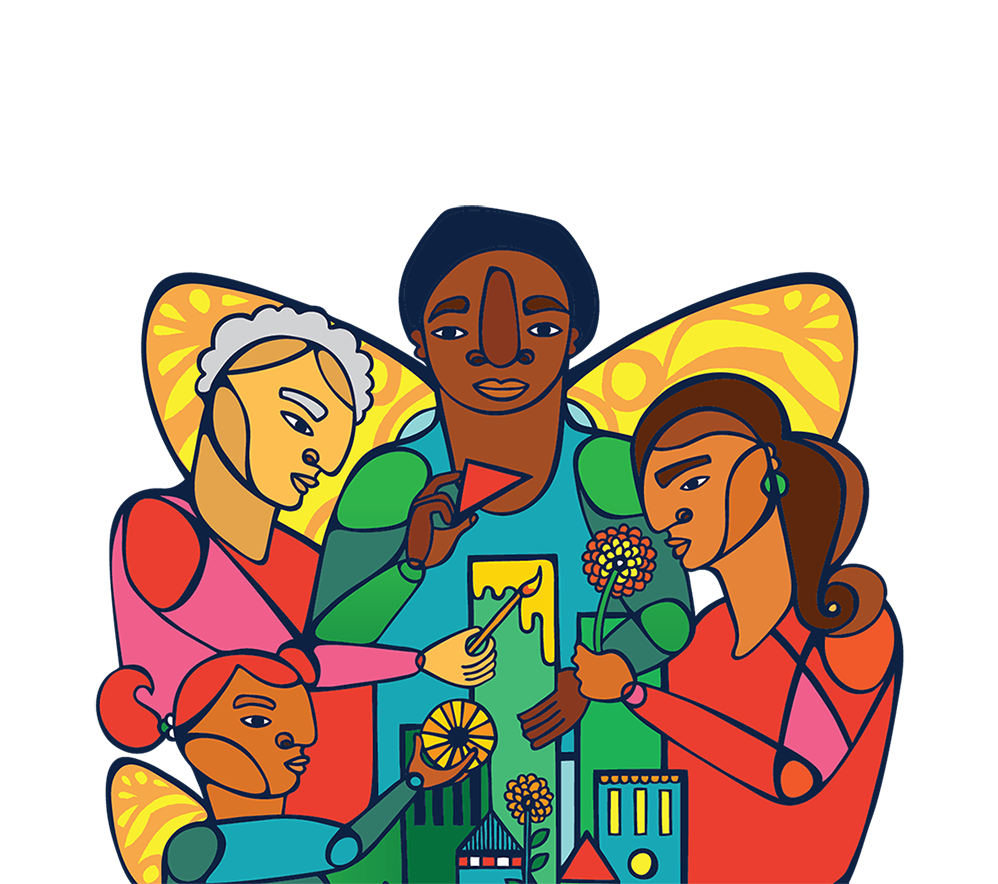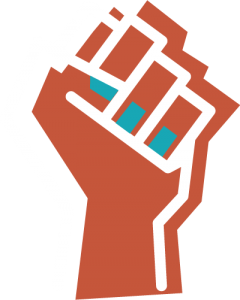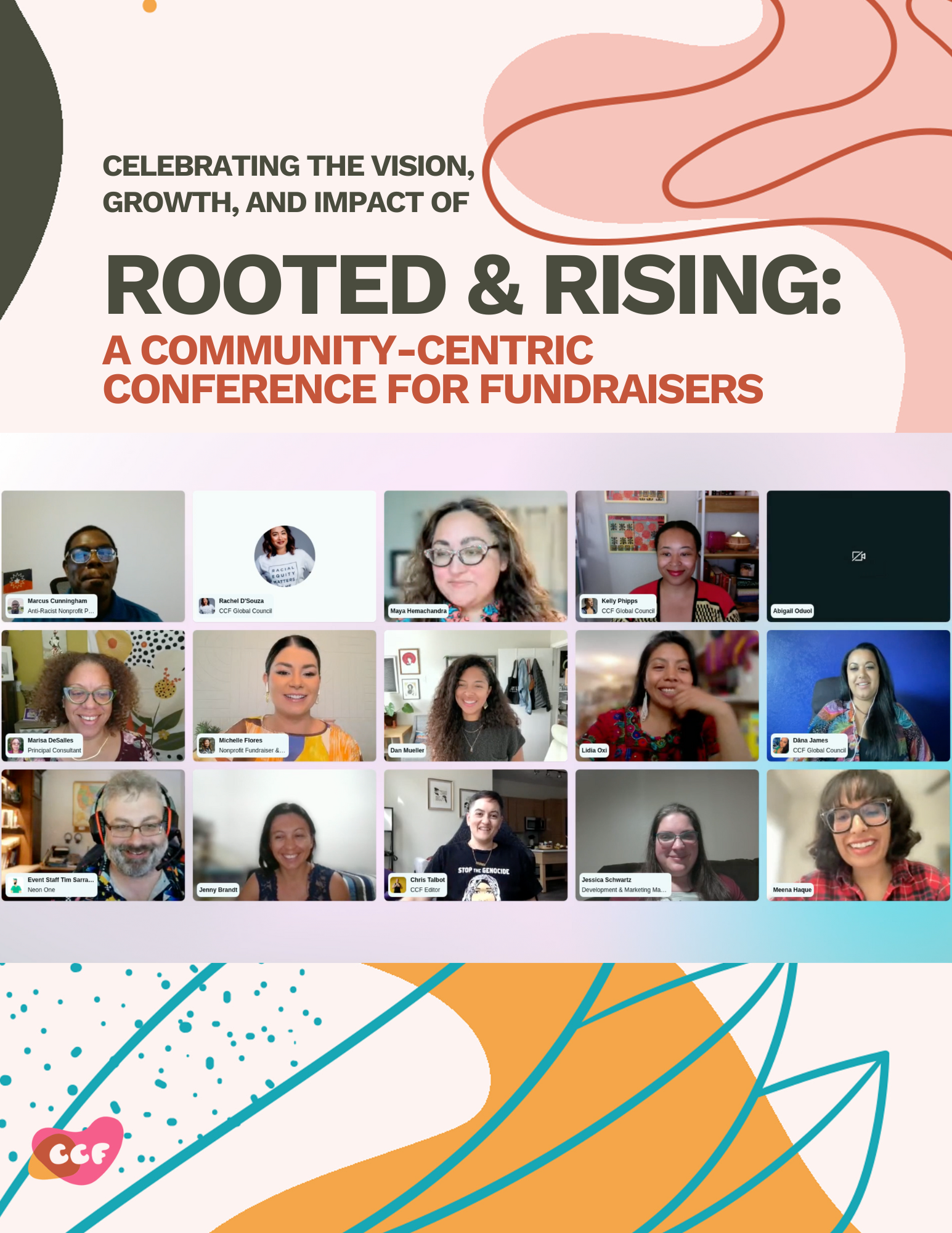
PRIORITIZE COMMUNITIESReimagine Fundraising
Community-Centric Fundraising is a fundraising model that is grounded in equity and social justice. We prioritize the entire community over individual organizations, foster a sense of belonging and interdependence, present our work not as individual transactions but holistically, and encourage mutual support between nonprofits.
PRIORITIZE COMMUNITIESReimagine Fundraising
Community-Centric Fundraising is a fundraising model that is grounded in equity and social justice. We prioritize the entire community over individual organizations, foster a sense of belonging and interdependence, present our work not as individual transactions but holistically, and encourage mutual support between nonprofits.
EQUITABLE FUNDRAISING
 CENTERED AROUND COMMUNITY
CENTERED AROUND COMMUNITY
We need a fundraising model in which we respect donors and build strong relationships with them, but one that they are not the center of. The community we serve and benefit from must be centered.
 MOVEMENT BUILDING
MOVEMENT BUILDING
We envision a sector that believes in the principles of Community-Centric Fundraising, that uses these fundraising principles and practices to build the power and voice of communities of color.
 EVER-EVOLVING
EVER-EVOLVING
The CCF principles and sample actions are iterative and will change and evolve as we have more conversations, including, likely, some more healthy arguments.
THE 10 PRINCIPLES
These ever-evolving core principles have been developed from conversations with so many fundraisers of color over the the past few years. The 10 Principles are how we aspire to transform fundraising and philanthropy, so that they are co-grounded in racial and economic justice.
CCF Family Reunion
Saturday
April 25, 2026
San Diego
California
The Latest Hub Content
Access is not optional
 The poem is not an indictment but an invitation. It calls nonprofits and creative institutions to reimagine access not as a logistical hurdle but as a foundation for justice.
The poem is not an indictment but an invitation. It calls nonprofits and creative institutions to reimagine access not as a logistical hurdle but as a foundation for justice.
Understanding community and local voices is your strength when communicating for development
 But here’s what no one tells you: navigating the technical side of the job is just one part of it. The harder part is managing the invisible expectations that come with being a person of color working in development, often under white, Western leadership.
But here’s what no one tells you: navigating the technical side of the job is just one part of it. The harder part is managing the invisible expectations that come with being a person of color working in development, often under white, Western leadership.
Why CCF Family Reunion is different from other conferences: It’s about relationship, not just content.
The Latest Event Reports
JOIN CCF’S Mighty Network!
For those of you who are interested in starting up a CCF group in your own city or just meeting cool new folks, hit up our CCF Mighty Network!
Newsletter sign up
For those who want articles from The Hub and updates emailed to them on a weekly basis, sign up and select “The Content Hub.”

 Relationship-building is not a side benefit of this conference; it is the core function.
Relationship-building is not a side benefit of this conference; it is the core function.